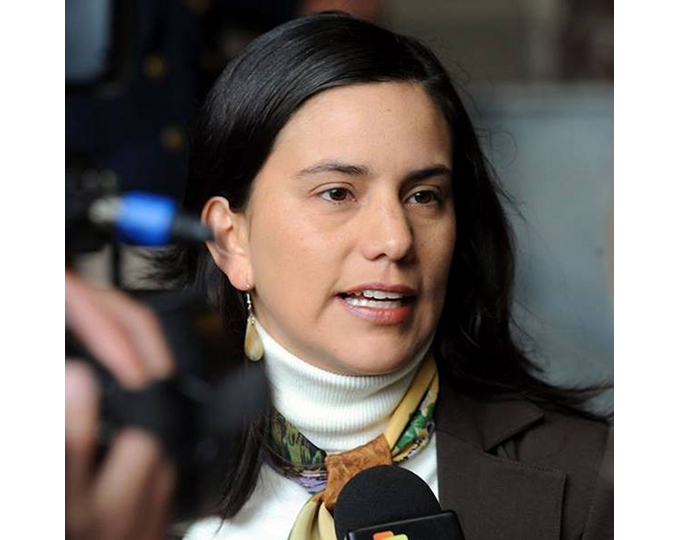
The old dictatorship’s long shadow dims outrage over the Odebrecht scandal in Peru
by Eric Jackson
In Lima on December 21, after rushed procedures and a 10-hour debate, 79 of 130 deputies in the Peruvian Congress voted to convict and oust President Pedro Pablo Kuczynski (PPK, as he is commonly known) for lies about money his companies received from the criminal Brazilian construction conglomerate Odebrecht. PPK is a billionaire businessman who served in the cabinets of two previous governments. The investment banker’s troubles stem from when he served as minister of economy and finance and later as president of the council of ministers in the Alejandro Toledo administration between 2001 and 2006. Toledo is a fugitive, wanted on charges of taking bribes from Odebrecht. It turns out that during the Toledo administration one of PPK’s companies, Westfield Capital Ltd, was paid just under $5 million for consulting work by Odebrecht. PPK says that he had separated himself from his companies’ management (but not ownership) while serving in public offices and did not know of the Odebrecht contracts. Later he admitted that he did know. Both Odebrecht and PPK say that the payment was for legitimate work done and not a bribe.
Polls suggest that just more than half of Peruvians think that PPK should be removed from office, and more than two-thirds believe that the Odebrecht investigations should continue no matter who is implicated in whatever way. One problem in dealing with Odebrecht is a policy, described by former CEO Marcelo Odebrecht (who just left prison for house arrest in Brazil), of going into a country and bribing all significant players so as to avoid controversies, or bribing nobody, in order to secure large public works contracts. In the state of Florida, for example, Odebrecht received lucrative public works contracts and made payments to both the foundation of Republican Jeb Bush and the political action committee of Miami Democratic party boss Xavier Suarez. In Peru, Odebrecht money sloshed across most of the political spectrum, including at least one campaign of the leftist former mayor of Lima, Susana Villarán.
As disturbing as the Odebrecht scandals are to most Peruvians, more disturbing to many is the shadow of Alberto Fujimori, who dissolved the Congress, dismissed the courts, spied on political adversaries and many other citizens and set loose the Grupo Colina death squads across the land. Yes, the Shining Path guerrillas whom Fujimori suppressed were notoriously brutal and the rival Marxist MRTA rebels were also an armed threat. US-backed non-governmental ronda campesina militias were also involved in the violence. Nearly 70,000 people lost their lives in the conflict, at least one-third of them at the hands of government forces. In the course of the fighting Fujimori’s right-hand man, Vladimiro Montesinos, took advantage to gain control of the drug business in areas conquered from the rebels and to run extortion scams on the side. Montesinos has been in a military prison since the mid-90s and faces trials in dozens of cases beyond those for which he has been convicted. Fujimori fled to Japan but later returned and has been imprisoned since 2007, serving a life sentence and facing several new trials.
Whether or not to free Alberto Fujimori — or any of the other people serving long prison sentences for the atrocities they committed during the conflict — is the hottest button to touch in Peruvian politics. Essentially the Fujimori family runs the Fuerza Popular party, and in her first run for president the ex-dictator’s daughter Keiko Fujimori said that she would free her father. But in the 2016 race she promised not to do so. This set off a rumble within Fuerza Popular, with Keiko’s younger brother Kenji Fujimori making a bid for party leadership and promising that if he has anything to do with it his father will walk out of prison. In the middle of PPK’s impeachment proceedings, an apparent draft recommendation to release the former president to house arrest for purported medical reasons was made public and helped to inflame the debate.
Keiko Fujimori essentially controls the Congress, with loyalist Luis Galarreta as speaker. Kenji Fujimori is also a Fuerza Popular deputy, with his own faction. His big sister has engineered a ban on him speaking in the Congress, but he still has a vote.
The 10-hour trial and the procedures leading up to it were farcical enough to garner withering criticism from Peruvians of many descriptions, including journalists and human rights activists who don’t particularly like PPK. During the trial and debate one deputy lashed out at PPK with xenophobic epithets for supposedly humiliating Peru in front of a Chilean. Other deputies — including the daughter of former president Alan García — had their cell phones out to take photos or videos or just to tell the president’s lawyer that they weren’t paying attention to what he was saying. Meanwhile in USA, PPK’s old Wall Street friends were conducting a media defense of him, most prominently via a widely republished if barely coherent editorial in The Washington Post. In the Peruvian Congress, the president only had a caucus of 18 loyalists.
However, days before the vote leftist deputy and former presidential candidate Verónika Mendoza, who has recently formed a breakaway party with 10 deputies after yet another leftist faction fight, denounced the impeachment move as a “cynical maneuver” by Keiko Fujimori to take over the government. She added that if PPK “can’t clear up the allegations involving himself, he should resign.”
PPK threw in all the chips and pulled out a wild card. It was announced that were he removed, his two vice presidents would resign and go with him. That would leave Keiko’s man Luis Galarreta as president, with uncharted waters about a special election and the rules of any such process.
Kenji Fujimori is anything but a PPK man, but allowing Galarreta, who suspended his speaking rights in Congress, to become president was a bit much for him. As was giving his big sister the upper hand in the battle to control the party. He announced that he would not vote for impeachment. He and nine other members of his party faction abstained on the motion to remove PPK and now the speculation is about whether his sister will engineer a party purge.
Several of the other parties in the Congress also split among those for whom a corrupt president and the specter of a return to something like the dictatorship of old were considered the greater or lessor horrors.
Late that night, the vote came down 79 in favor, 19 against and 21 abstentions. But Keiko needed 87 votes for the required super-majority that would have put her man in the presidency. PPK stays. For now.
~ ~ ~
These announcements are interactive. Click on them for more information.











